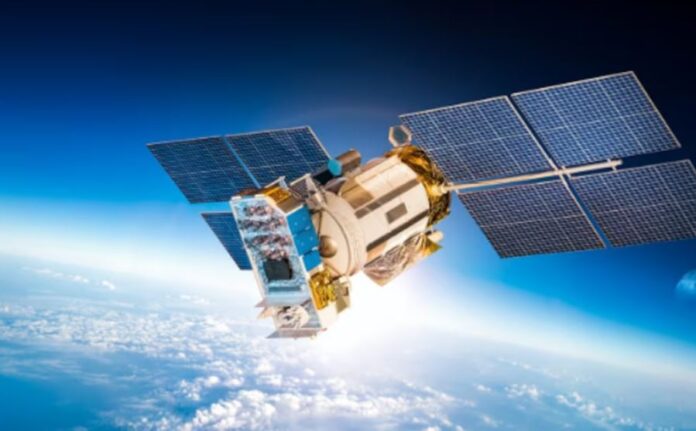In a shocking escalation, the United States has accused a Chinese satellite company with ties to the People’s Liberation Army (PLA) of providing critical targeting intelligence to Iran-backed Houthi rebels in Yemen. The firm, Chang Guang Satellite Technology Co. (CGSTL), is allegedly assisting the Houthis in directing attacks against U.S. warships in the Red Sea, raising alarms about Beijing’s role in threatening American interests and global trade routes.
U.S. Sounds the Alarm on Chinese Involvement
According to U.S. officials, CGSTL’s satellite data is being used to help Houthi militants pinpoint U.S. naval vessels, despite repeated private warnings from Washington to Beijing. The accusations mark a significant escalation in tensions, as the U.S. directly links a Chinese state-affiliated company to terrorist activities targeting its forces.
Also Read: Trump Media Flags Suspicious Activity, Seeks SEC Probe into Short Selling
State Department Spokesperson Tammy Bruce minced no words in a recent statement:
“CGSTL is directly supporting Iran-backed Houthi terrorist attacks on U.S. interests.”
The Red Sea, a vital artery for global commerce, has become a flashpoint due to Houthi attacks on shipping and naval assets, which the group claims are in retaliation for U.S. support of Israel. The involvement of a Chinese firm in these attacks has added a new layer of complexity to the conflict.
Trump’s Push to Secure Trade Routes
President Donald Trump has prioritized securing the Red Sea, urging U.S. allies to confront China’s growing use of dual-use technologies—civilian tools with military applications. The administration views Beijing’s satellite activities as part of a broader strategy to expand influence and undermine Western security.
“China’s playing a dangerous game, and the world needs to wake up,” a senior Trump administration official said, emphasizing the need for a coordinated response to counter Beijing’s technological reach.
What’s at Stake?
The accusations against CGSTL highlight the increasing weaponization of space technology in global conflicts. With Houthi attacks disrupting one of the world’s busiest maritime corridors, the U.S. Navy has been forced to bolster its defenses, diverting resources and escalating operational risks.
Washington’s warnings to China have so far gone unheeded, raising questions about how the U.S. will respond. Options could include sanctions on CGSTL, diplomatic pressure on Beijing, or even military countermeasures to neutralize the satellite threat.
Global Implications
The Red Sea crisis underscores the intersection of geopolitics, technology, and terrorism. As China’s satellite capabilities grow, so does its ability to influence conflicts far from its borders. For the U.S., countering this threat will require not only military vigilance but also a concerted effort to rally allies against the misuse of dual-use tech.
As tensions simmer, the world watches to see whether this latest revelation will spark a broader confrontation between Washington and Beijing—or if diplomatic channels can defuse the crisis before it spirals further.
Key Points:
- Chinese Satellite Firm Implicated: Chang Guang Satellite Technology Co. (CGSTL), linked to the People’s Liberation Army (PLA), is accused of providing targeting intelligence to Iran-backed Houthi rebels in Yemen.
- Targeting U.S. Warships: CGSTL’s satellite data is allegedly helping Houthis aim attacks at U.S. Navy vessels in the Red Sea, threatening American interests.
- U.S. Warnings Ignored: Washington issued private warnings to Beijing about CGSTL’s activities, but the support for Houthi attacks has continued.
- State Department Condemnation: Spokesperson Tammy Bruce stated, “CGSTL is directly supporting Iran-backed Houthi terrorist attacks on U.S. interests.”
- Trump’s Priority: President Trump has made securing Red Sea trade routes a key focus, urging allies to counter China’s use of dual-use technologies.
- Global Security Concerns: The incident highlights the weaponization of space technology and China’s growing influence in global conflicts, complicating U.S. efforts to protect vital maritime corridors.



